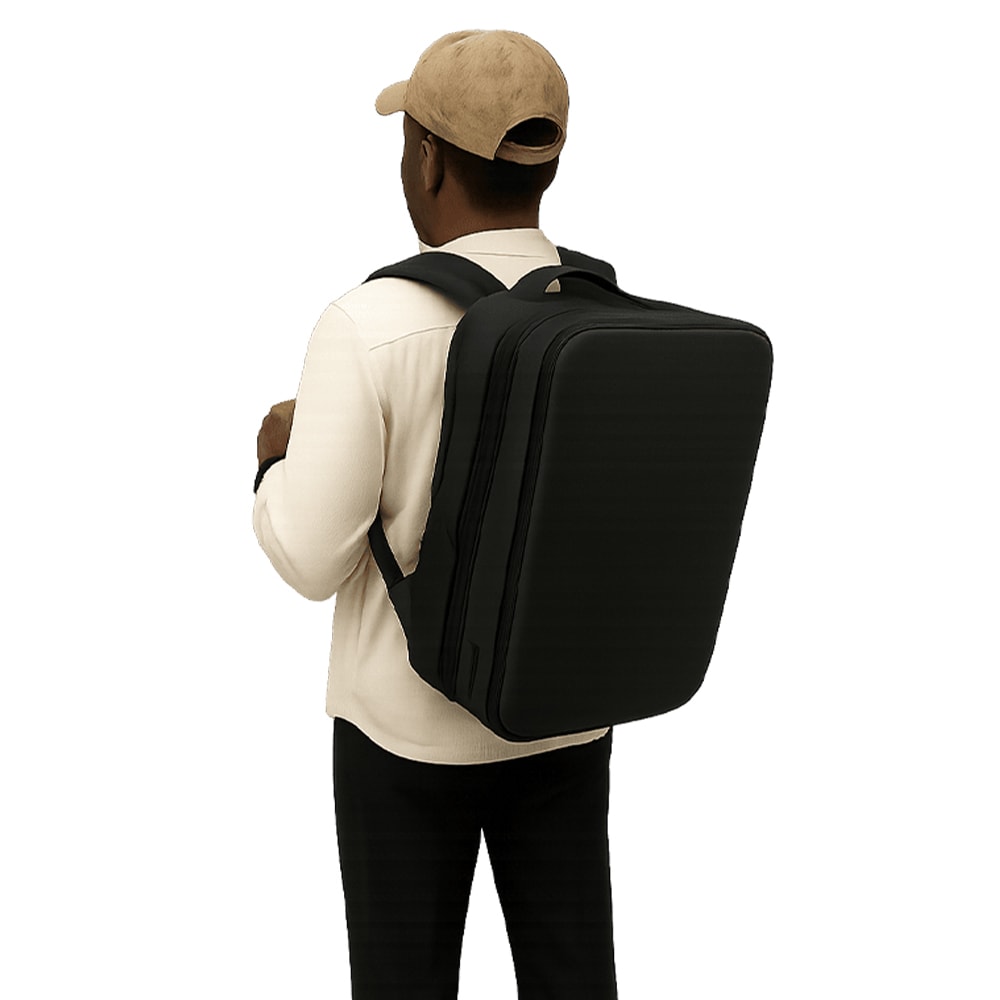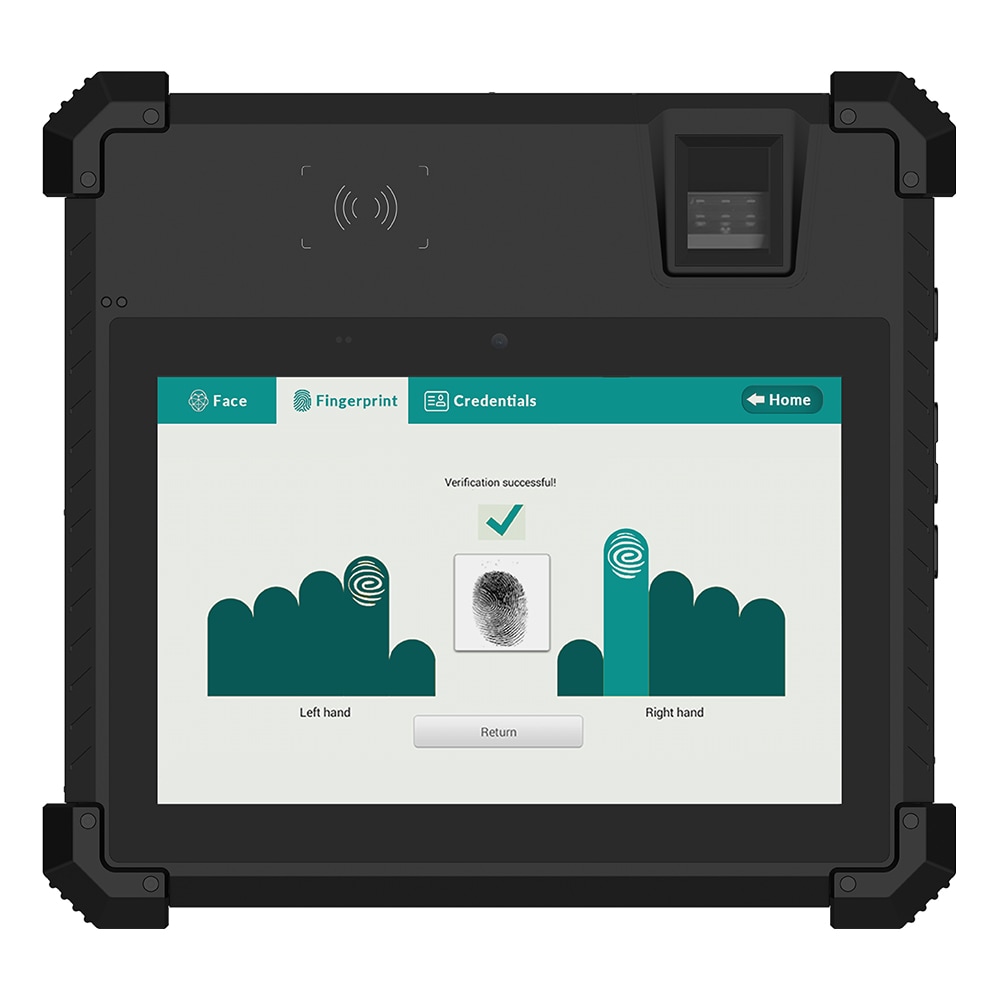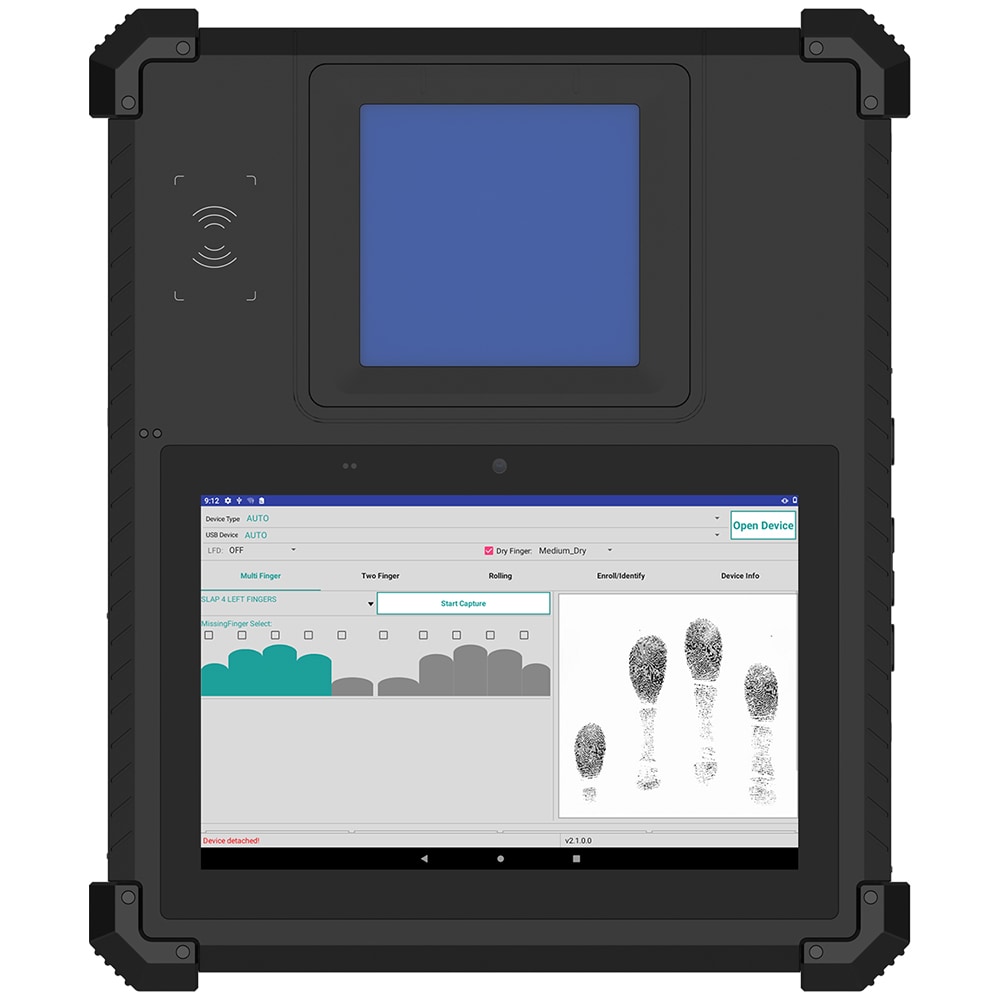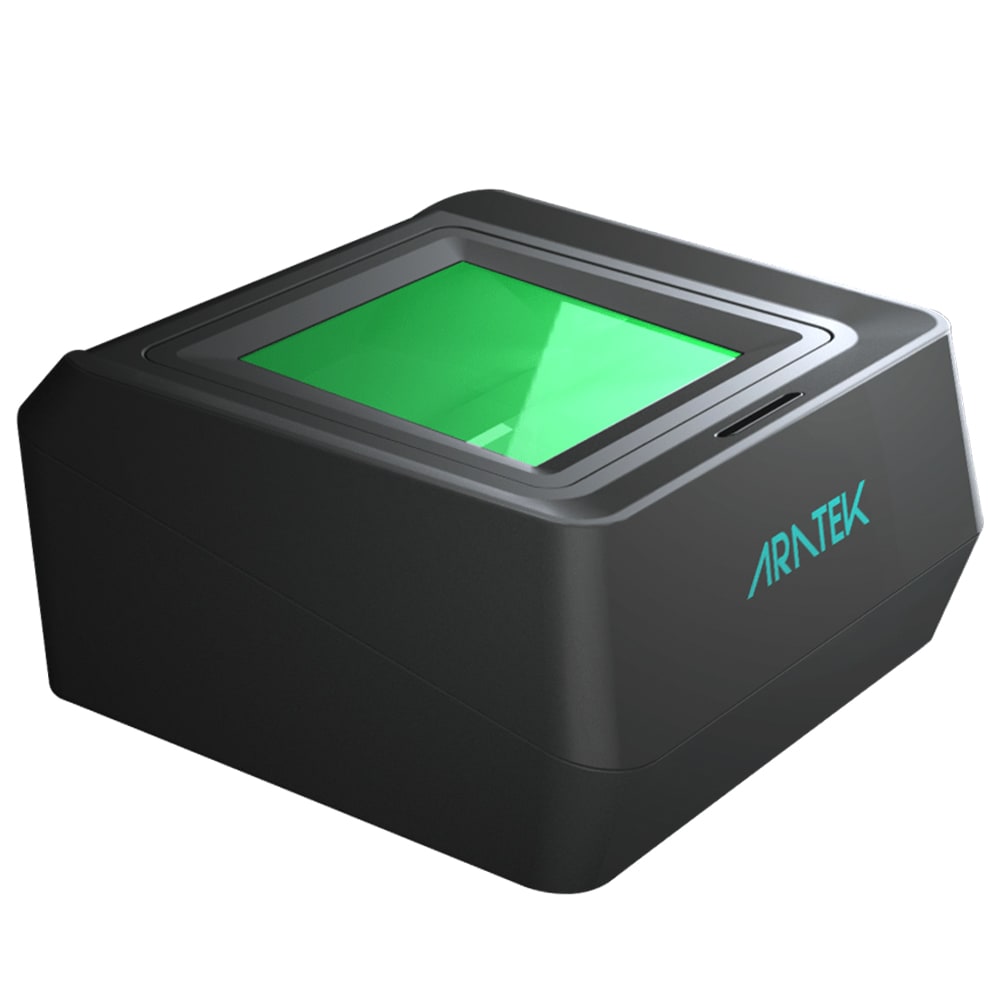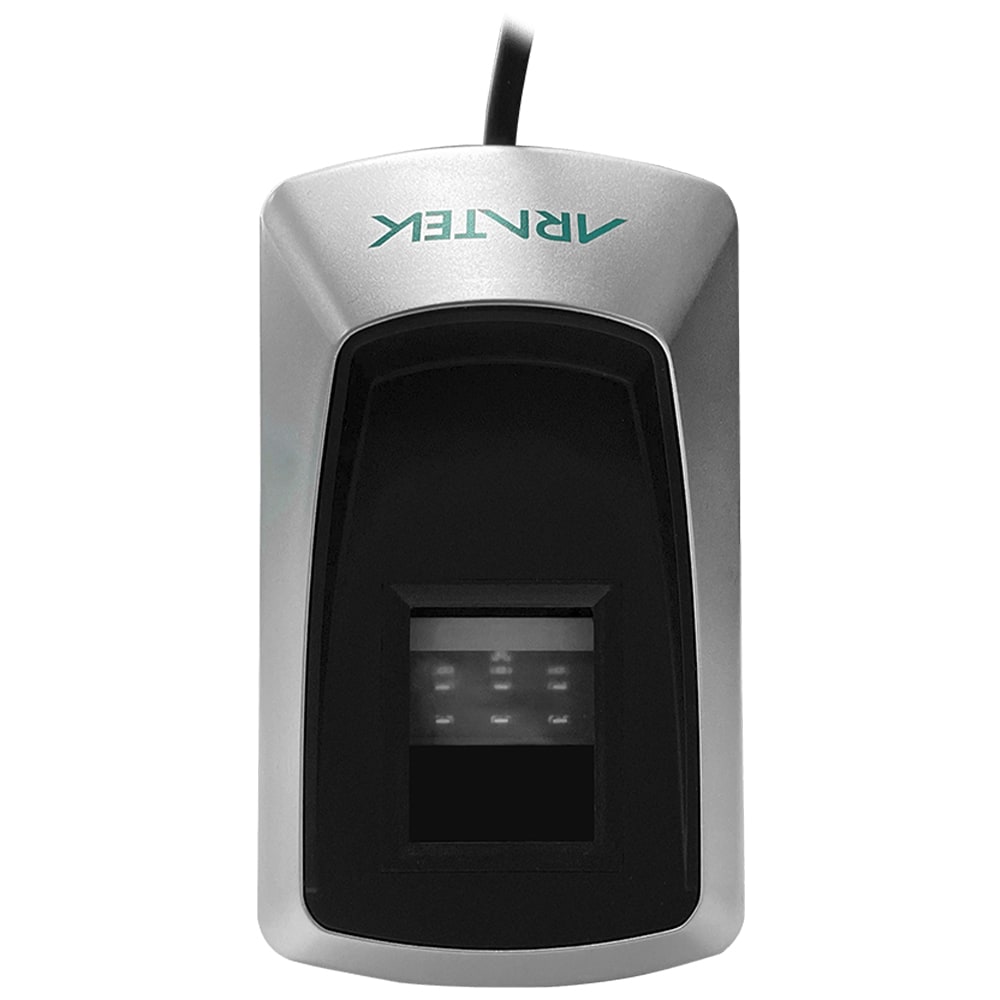
PRODUCT

Smarter Biometrics, Stronger Digital Identity.
VIEW ALL
product finder
solution
case study
support
Company

Identifying the World. Easily, Securely.


years of solid experience
20+
.jpg)
400+
customised projects



EN
.avif)

Are you looking for a way to improve security at your hotel? If so, using biometrics in hotel access control system would be the ideal solution. For the hotel industry, it is essential to provide a safe and secure environment for guests. With advances in biometric technology, hotel owners now have a more efficient and secure way to check-in and check-out guests, maintain hotel access control, keep track of employee time and attendance, and more. A comprehensive access control solution, with biometrics as a key component, ensures a modern and secure approach for hotels, enhancing guest safety and convenience.
According to Oracle's Hotel 2025 report, 62% of consumers said that automated recognition using biometrics and facial recognition would make their experience better, and 41% would visit hotels more often if they offered this service.
While the peak of the COVID-19 pandemic has passed, the shift in traveler preferences towards safer and more hygienic accommodations remains influential. Many travelers continue to value and seek out accommodations that offer contactless biometric services, appreciating the added hygiene and convenience these technologies provide. According to a Metova survey, 86% of guests prefer hotels that use contactless technology, showing that there is a strong demand for biometric solutions in the hotel industry.
{{product-cta}}
The trend towards modernization in the hospitality industry continues as hotel owners increasingly adopt advanced technologies, including biometric security systems, to meet evolving guest expectations. Biometric technology is helping them to provide contactless physical access control solutions that cut out human interaction– allowing guests to check in or out with just one scan of their face! All while maintaining high hygiene standards for everyone’s safety.
In this blog post, we will explore the 13 benefits of using biometrics in hotel access control system, this will be helpful for you to decide if it is the best choice for your hotel business, especially during the post COVID-19 era.

One of the main benefits of using biometrics for hotel access control systems is that it provides a more secure and safety environment for guests. By enhancing the security of hotel door locks with biometric technology, hotels can significantly reduce the risk of unauthorized personnel gaining access to restricted areas, such as guest rooms or employee-only areas.
This advanced approach to door locks not only prevents unauthorized access but also integrates seamlessly with other security systems, offering a comprehensive security solution. As the industry adapts to a new normal, the importance of ensuring safety and security for travelers remains a priority, with biometric technology playing a crucial role.

Using biometrics for hotel access control can also help to streamline check-in and check-out processes for guests. With facial recognition or iris recognition, hotel guests can be quickly and easily verified, allowing them to spend less time waiting in line at the front desk and more time exploring your hotel or attending to other tasks.
With fewer lines and wait times at check-in and check-out, guests are likely to be happier with your hotel, leading to higher return visits and positive reviews online. Additionally, you may be able to attract new customers by offering faster check-in and check-out processes than your competitors.

Choosing to use biometric technology in your hotel access control system also helps to ensure a more hygienic and contactless experience for guests.
With facial recognition or iris scanning, there is no need to manually input your details or scan a physical ID, which can help to reduce the risk of transmitting or contracting germs and viruses. Additionally, facial recognition is a more hygienic option than traditional pin or password log-ins, which can be prone to hacking and other forms of unauthorized access.

By using biometrics for hotel access control, you can provide a more streamlined and efficient guest experience not only for fast check-in and out, but also for other daily hotel activities, such as accessing their hotel room.
This can help to improve overall guest satisfaction and increase loyalty among your customer base. Additionally, your hotel will be able to use biometrics data to provide more personalized services and recommendations to guests, which can further enhance the overall guest experience and create brand advocates.
Integrating biometric access control systems with hotel management systems significantly enhances the management and security of guest rooms, offering features like automated check-ins, energy-saving measures based on occupancy, and seamless integration with other hotel systems for a superior guest experience.
Another benefit of using biometrics for hotel access control systems is that it can be easily integrated with existing hotel systems such as the hotel property management system (PMS), POS system, self check-in kiosks, or even accounting and invoicing systems.
This can help to streamline your hotel operations, improve efficiency, reduce manual errors, and provide a more seamless guest experience. With biometrics, you can easily create a fully integrated and automated system that meets the needs of your hotel, also ensuring that all systems are working in sync with each other and reducing the need for manual entry of data and other redundant processes.

When it comes to smart hotels, installing biometric access control systems should be the first thing on the to-do list for owners and managers.
Your hotel will be able to gradually transform into a smart hotel by combining biometric access control systems with other cutting-edge technologies such as virtual assistants, humanoid robots, virtual reality (VR), and augmented reality (AR) to greatly improve the guest experience and ensure efficiencies across all hotel systems. You can stay ahead of the curve and embrace the future of hospitality with biometric access control, giving your hotel the competitive edge it needs to thrive.
Perhaps one of the biggest benefits of using biometrics for hotel access control systems is that it can help to significantly improve operational efficiency across your hotel. With biometric solutions, your hotel staff can quickly and easily manage all hotel doors and entrances across the premises, without needing to carry keys or rely on outdated check-in and check-out processes.
This can help to improve productivity, reduce manual errors, and increase overall efficiency of your hotel operations.
In addition to improving security, using biometrics in hotel access control can lessen the likelihood of guests' valuables being misplaced. A major hassle for hotels that use traditional room keys or cards is when guests need to change their keys due to lost or stolen items.
With biometrics, you can easily upgrade hotel door lock systems to get rid of keys and cards, making it easier to manage your hotel and reducing operating expenses.

In addition to providing increased security and safety for guests, biometric access control can also help to improve security for hotel staff.
With facial or fingerprint recognition, you can easily restrict access to certain areas of your hotel during off-hours, ensuring that unauthorized individuals are unable to gain access to sensitive areas. This can help to improve the overall safety and security of your hotel staff and keep them productive even during non-working hours.
One of the biggest benefits of using biometrics for hotel access control is that it offers unprecedented levels of scalability and flexibility. If you are using a cloud-based biometric access control system for your hotels, you can quickly and easily add or remove users and access points as needed, without worrying about hardware limitations or other restrictions.
Whether you are a small independent hotel or a large chain, a cloud-based biometric hotel access control system can be easily scaled and upgraded to meet the needs of your hotel business, you can be confident that your hotel access control system will continue to meet your needs as your hotel grows and evolves over time, while ensuring your access control system will remain effective and efficient, no matter what the future holds.
Using biometrics for hotel access control systems can help improve employee management and productivity by making it easier to track staff hours.
With a biometric access control system that incorporates attendance tracking, you can control access security while conveniently tracking when your employees arrive and leave work without relying on manual time tracking systems. This can help to improve the accuracy and efficiency of your hotel’s operations, while also reducing administrative costs associated with time tracking and other manual processes.
You can get a better return on investment and lower total cost of ownership by switching to biometrics for hotel access control. Because biometric solutions are easier to manage and require less ongoing maintenance than traditional systems, you can expect a lower total cost of ownership over the long-term.
Additionally, several biometric solutions can be seamlessly integrated with your existing hotel management software or other systems, further reducing costs and increasing your ROI. Whether you are looking to streamline your hotel operations or provide a more secure, convenient guest experience, biometrics for hotel access control is an excellent choice.
Finally, the benefit of using biometrics for hotel access control is that you can rest easy knowing that your guests, staff, and hotel operations are secure and protected.
With advanced biometric technology such as facial recognition or fingerprint scanning, you can easily monitor and track access to your hotel, ensuring that only authorized individuals are able to gain entry and access to sensitive areas. This can provide peace of mind for you and your guests, as well as help to ensure that your hotel is always safe and secure for everyone who visits.
If you manage or own a hotel, then you know that security is always a top priority. And with the outbreak of COVID-19, many hotels are looking for ways to modernize their operations and provide a more seamless customer experience while maintaining hygiene and safety. One way to do this is by using biometric technology in hotel access control. Biometrics provides numerous benefits for both hotel guests and staff, including increased security, convenience, and peace of mind.
As we move beyond the immediate impacts of COVID-19, implementing advanced technologies such as contactless biometric systems, including facial recognition and iris scanning, continues to be a strategic priority for enhancing safety, hygiene, and guest satisfaction.
If you're looking for a way to improve security at your hotel, biometric access control systems may be the answer. Don't hesitate to reach out and speak with us so that we can aid you in setting up a comprehensive hotel access control system. By using state-of-the-art biometrics, your customers will be able enjoy a safe and secure stay at your hotel.
A hotel access control system is a security system used to restrict access to a hotel, its guests, and their belongings. The system typically consists of electronic locks, a computerized management platform, door controllers, and access control devices like a keypad, card reader, or biometric sensor to verify the identity of the guest and release the locks. It's part of the hotel's physical security system, which includes video surveillance, fire alarms, and other measures to ensure security and safety.
Hotel access control solutions and systems are critical physical security measures to prevent unauthorized individuals from entering the property and gaining access to restricted areas such as the hotel lobby, guest rooms, and staff-only areas. They can also be used to track who is entering and exiting the property and when.
There are four main types of access control systems for hotels:
This system uses rules, such as time of day or location, to determine access rights for guests and employees.
This system assigns different roles to guests and employees, such as check-in clerks or housekeeping staff. Access rights may be automatically granted or denied based on an individual's role.
This system allows hotel owners and managers to grant or deny access rights on a per-user basis, giving them full control over who has access to which parts of the hotel.
This system uses predetermined access levels to control which individuals can access specific information or resources. For example, only the hotel manager may have full access to sensitive financial information, while other employees may have access to more limited data.
A hotel access control system functions by enrolling guests' information into the system during check-in, assigning them individual credentials such as keycards or passwords, and controlling access by reading a guest's RFID card, face, fingerprints, or keycard to identify the guest and then determining if the guest is authorized to enter a specific hotel room. Some systems may also use facial recognition or other biometric technologies to confirm the identities of guests and employees.
The access control system will also keep track of when each hotel room door is accessed and by whom in order to help the hotel staff keep track of who is in the hotel at any given time.
.avif)
Use our product finder to pinpoint the ideal product for your needs.

